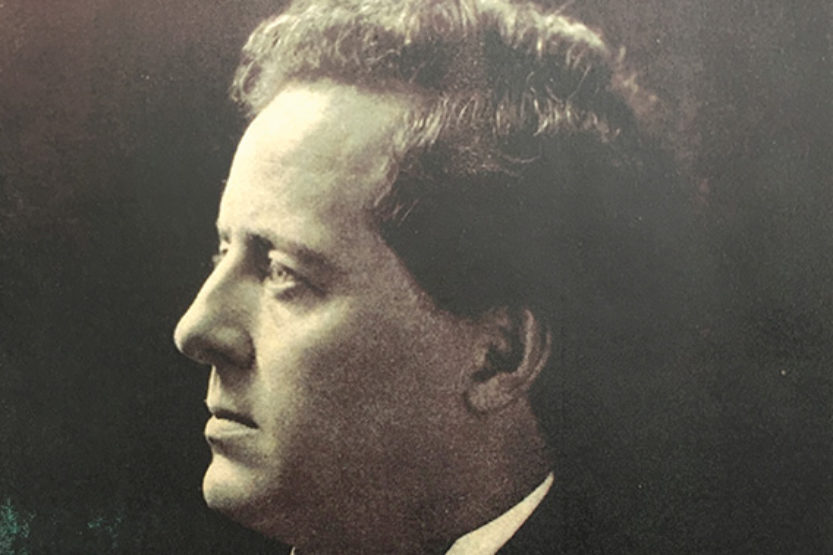A president apart
 During his tenure, University of Illinois President Edmund Janes James presided over the construction of such facilities as the English Building, Lincoln Hall and the Materials Science and Engineering Building. He established the School of Music and University Press and worked toward making the University Library one of the world’s best.
During his tenure, University of Illinois President Edmund Janes James presided over the construction of such facilities as the English Building, Lincoln Hall and the Materials Science and Engineering Building. He established the School of Music and University Press and worked toward making the University Library one of the world’s best. Edmund Janes James arrived in Urbana in the fall of 1904 with a vision—to transform the nascent land-grant college in the heart of the Illinois prairie into a university on par with such lauded institutions as Oxford and Cambridge.
Born in Jacksonville, Ill., on May 21, 1855, James attended elementary school and secondary school at Illinois State Normal University. He spent one year at Northwestern University and another year at Harvard before traveling to Germany in October 1875 to enroll at the University of Halle. James graduated with his Ph.D. in political economy in 1877 at the age of 22. Returning home, he brought with him a profound admiration for the efficient, modern, science-based German model of education.
Between 1881 and 1903, James held various appointments: high school principal; publisher of the Illinois School Journal; head of the Wharton School of Finance and Economy at the University of Pennsylvania; professor and administrator at the University of Chicago; and president of Northwestern University. Inaugurated as the president of the University of Illinois on Oct. 18, 1904, he gave an address that detailed his plans for the institution: recruit first-rate scholars and instructors; promote science and engineering; design a well-rounded curriculum that would prepare students for both professional and community life; and unify educational forces and state activities “into one great cable whose future strengths no man may measure.”
James would spend the next 16 years fashioning that cable. He presided over widespread campus construction, including Lincoln Hall and the Materials Science and Engineering Building. He encouraged international students to attend, reformed medical education to include research and clinical experience (based on the German model), and expanded religious diversity by inviting religious denominations to establish foundations on campus. McKinley Health Center, the School of Music and the University of Illinois Press saw their beginnings during his tenure. James also sought to make the University Library “one of the great libraries of the world.” Between 1904 and 1914, the Library’s collection grew from 60,000 volumes to more than 300,000.
James worked doggedly and successfully to secure money from the state. During his administration, appropriations increased almost tenfold, to nearly $2 million annually. His initiatives included reorganizing and enhancing the graduate school in February 1908, which led to Illinois’ inclusion in the American Association of Universities and brought the University on par with other Midwestern public institutions such as Michigan and Wisconsin.
A skilled negotiator known for being democratic, agreeable and level-headed, James was not without his quirks and no stranger to quarrels. An audacious man, he once sent a Washington, D.C.-bound colleague a note saying, “If you see President Theodore Roosevelt, tell him I am available for a cabinet position.” Following a confrontation with John R. Trevett, a Champaign banker, Board of Trustees member and opponent of James’ “liberal and progressive” agenda, James employed a Greek phrase that translated to “a supreme jackass” to describe Trevett.
Departing the University in ill health on Sept. 1, 1920, James stated that Illinois “has become one of the great universities of the world.” Although no tangible memorial exists to commemorate James and his many contributions, the Edmund James Scholar undergraduate honors program at Illinois is named for him.

